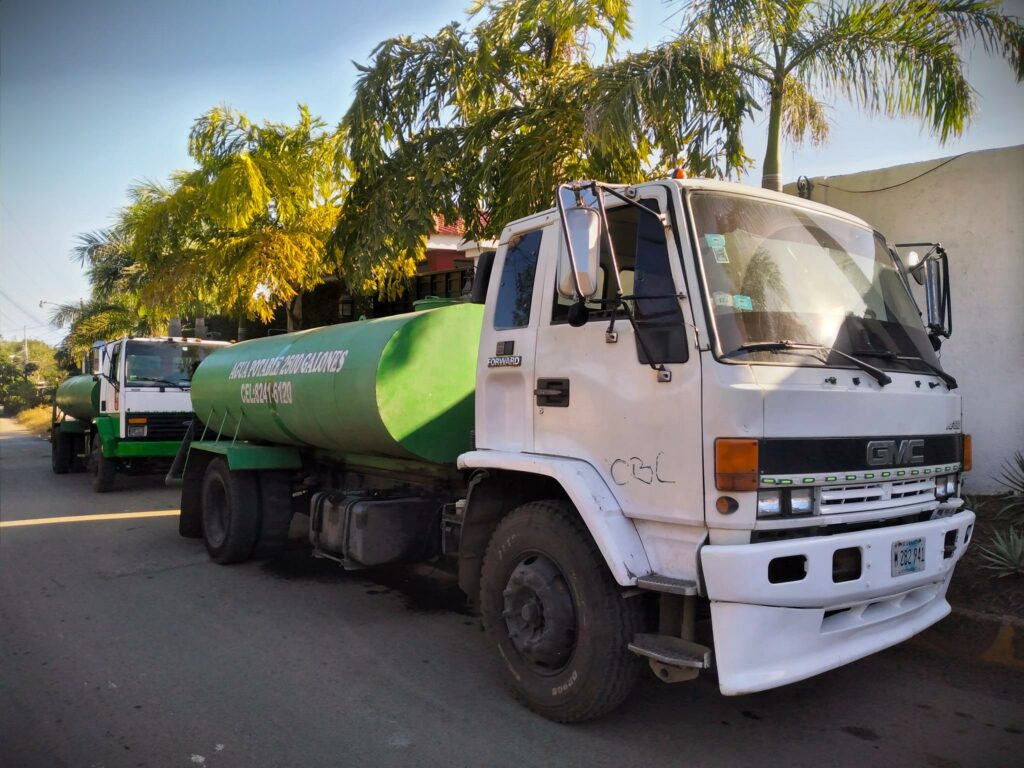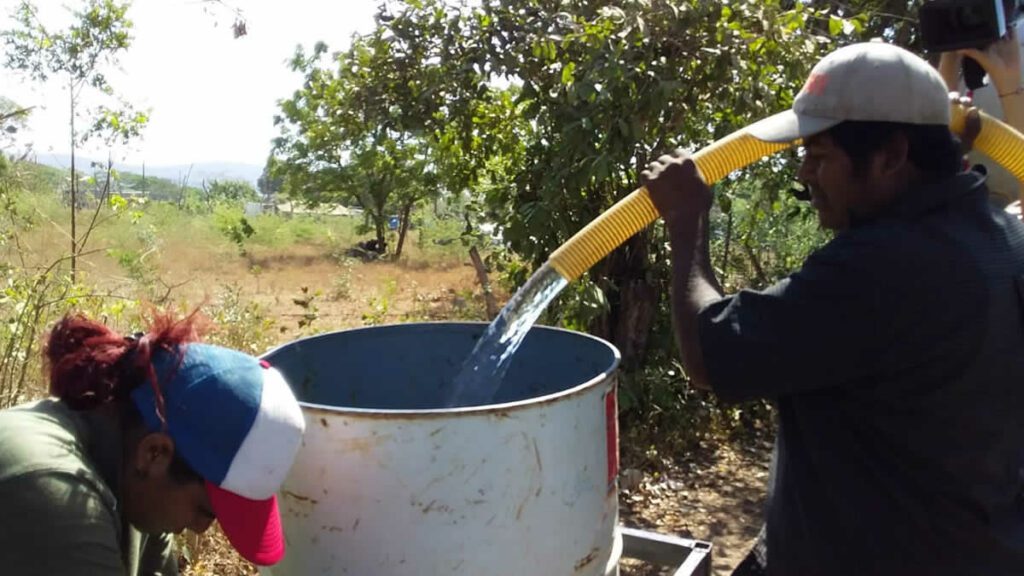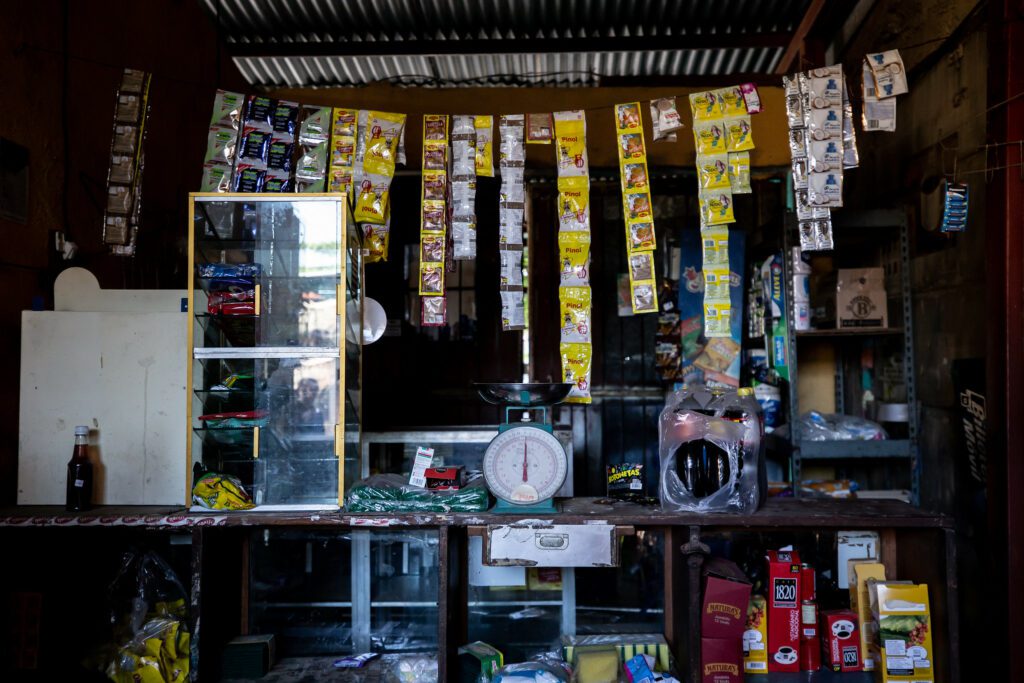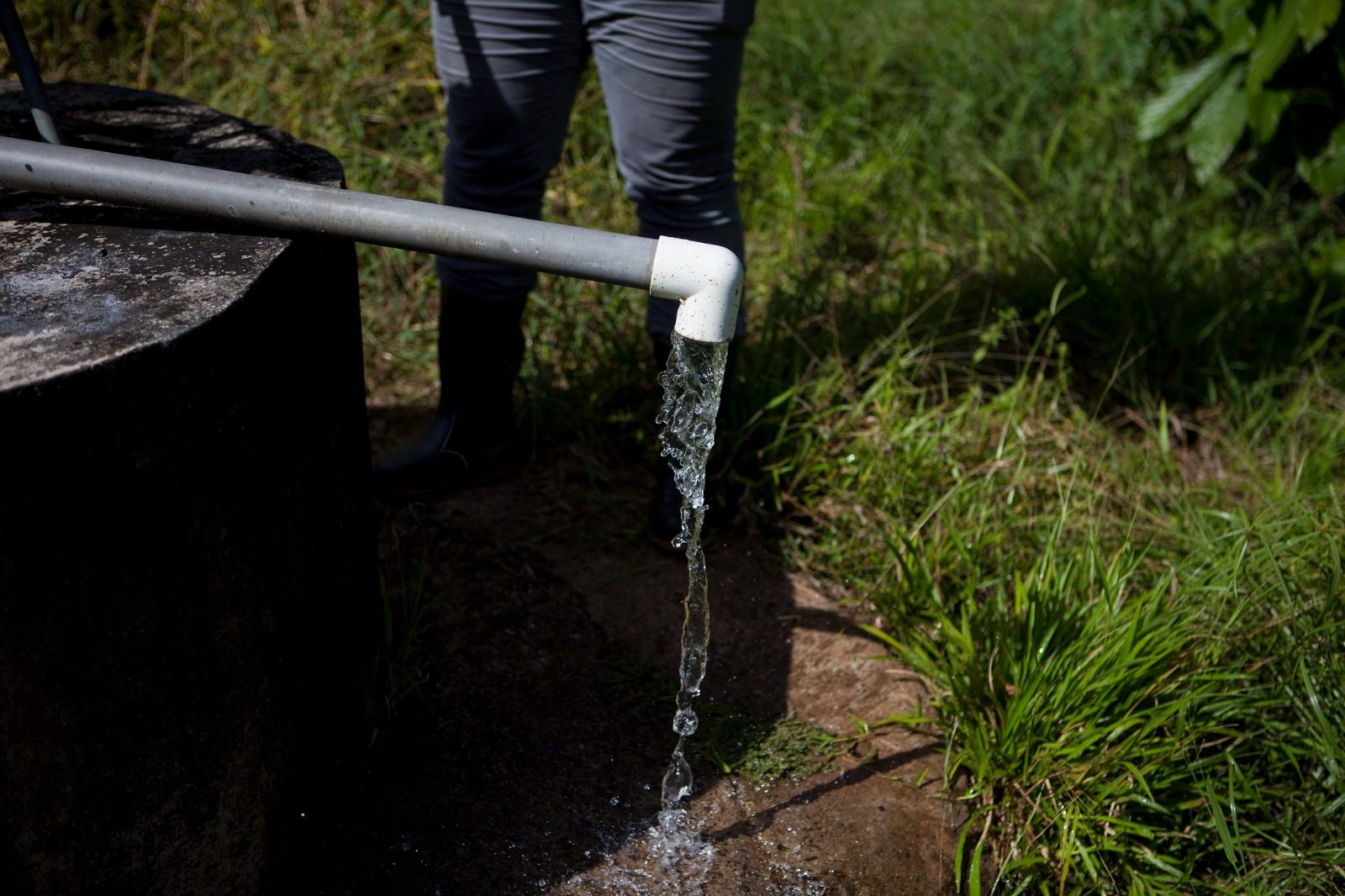Every morning, water tankers from the company Transporte Milton Gutiérrez arrive in the neighborhoods of Bello Amanecer, Bella Aurora and Urbina, an area of Managua abandoned by the state and the capital’s mayor’s office.
These tanks supply water to the almost 400 families in each neighborhood, at a cost of 40 cordobas per barrel with a 205 liter capacity.
Families with greater resources have water tanks that store between 2,000 and 2,500 liters of water. In addition, they can buy ten barrels or more, and they can buy as many as they need during the week.
Other poorer families can only buy four or five barrels a week, which is not enough to meet all their household needs. In order to ration their use, they store water in impractical containers such as metal barrels, already rusted from constant contact with humidity.
Recibe nuestro boletín semanal
From house to house, the cistern goes through the dirt streets of the neighborhoods and delivers the water with a large hose. The residents already know their water consumption and just tell the workers how many barrels they are going to buy. Five, eight barrels, ten, and whoever can, 15 barrels.
Water consumption in each neighborhood is very uneven, according to one of the local residents. While one family can use water with no problem for cleaning, drinking and hygiene, in others they ration water even for drinking or cooking.
Water “depends on what you can afford”

“It all depends on what you can afford,” says a resident, who asked not to be named to “avoid trouble.” “If you can buy water every day, you buy it. If not, you have to put up with it until you have enough money. There are some families who don’t buy from the tanks. Who knows how they get their water?,” he adds.
Since the Nicaraguan Company of Aqueducts and Sanitary Sewers (Enacal) totally abandoned these communities in 2022, when it stopped sending drinking water pipes, this area of Managua became a source of income for private companies that sell water.
It has also served as a business for street vendors and small merchants, who offer water to families who cannot afford to buy from the companies, but at higher costs.
“The tanks leave at noon and if at the end of the afternoon you run out of water, you have to buy from some of those vendors. Then a bucket can cost you 60 or 70 córdobas,” explains another villager.
Water vendors claim to be certified by the Managua mayor’s office
Transporte Milton Gutiérrez is one of the companies that sell water on a daily basis.
Its owner, Milton Gutiérrez, assures residents that they are certified by Enacal and the Mayor’s Office of Managua as a drinking water company. However, the people who buy from him complain that the water has a yellowish color when it sits. Gutiérrez denies this and assures that such water comes from other companies that are not certified and from which the residents buy it.
DIVERGENTES consulted Gutiérrez about the water supply business and his relationship with the Mayor’s Office of Managua and Enacal, but he did not answer the questions we asked him via WhatsApp and email.
The lack of trust about the water offered by these tanks is also due to the fact that residents point out that it is collected from Lake Xolotlán to be used in projects of the Managua Mayor’s Office.
“The same cisterns that come to sell us water are the ones that work for the Mayor’s Office (of Managua). They have the same logos, the same fonts and everything. People see how the tankers go to the Malecon side to bring water and then go to the project area. I don’t think they wash the inside of the tanks to sell water to us,” says another resident.
It is because of this lack of trust that residents do not use the water they buy from the cisterns for drinking, but rather for household chores such as washing dishes and clothes, and cleaning the home.
Lack of water, a profitable business

The lack of water in these three neighborhoods is a totally profitable business for the tanker companies. The minimum for which Transporte Gutiérrez sends a water tank to a neighborhood is 48 barrels, between 40 and 45 córdobas each, that is, for an average of 2000 córdobas.
With 1200 families who do not have access to water in Bello Amanecer, Bella Aurora and Urbina distribution, the sale of water is every day. “The only day they don’t come are Sundays,” says Claudia, another resident who also requested anonymity.
As water consumption varies among families depending on the number of members and economic income, it is not possible to make an average of how much money this business generates daily. For example, families like Claudia‘s only buy five barrels a week, but others buy up to five a day.
Gutiérrez has also not responded to DIVERGENTES about the number of neighborhoods that his company supplies and the number of barrels of water that are sold per day.
However, Claudia claims that for a single block, up to 200 barrels can be sold. This means between 8000 and 9000 thousand córdobas in sales, based on the prices offered by Gutiérrez’s cisterns. “One cistern leaves empty and then another returns full, and so they rotate throughout the neighborhood,” she says.
Bottled water, a luxury within reach of few

Within the water business in this area there is another business: the sale of bottled water. In the absence of reliable sources of drinking water, the sale of bottled water has grown in these neighborhoods. Although in reality, only the wealthiest families are the ones who consume this product.
“There are some stores that sell Fuente Pura in gallons, jerry cans, bottles, but a jerry can can cost 80 pesos, because they resell them at a high price. And since they have to make money, that’s how they justify their prices,” says another resident.
Street vendors who have entered the water business also claim that their water is drinkable and sell bottled water or fill up buckets given to them by residents. While many people distrust the street vendors, necessity makes many families buy from them.
“There is a boy who always comes by and fills a bottle of water for 15 córdobas. I don’t buy from him, because I don’t know where he gets that water, but there are people who buy from him,” says Claudia. While other families simply consume the water bought from the tanks, despite its yellowish color and bad taste.
Enacal’s unfulfilled promises
The families in these communities of Managua barely reach the necessary consumption of water to meet their needs, which is 100 liters per person, according to the World Health Organization (WHO).
According to Enacal data, drinking water coverage in the urban area of Managua reached 93% in 2021.
The executive president of the institution, Ervin Barreda, pointed out to the official media that this is the highest water coverage figure in the history of the country, a figure that definitely does not take into account the families of the Bello Amanecer, Bella Aurora and Urbina neighborhoods. Enacal’s promise to provide drinking water to its inhabitants has remained unfulfilled for more than a decade.

